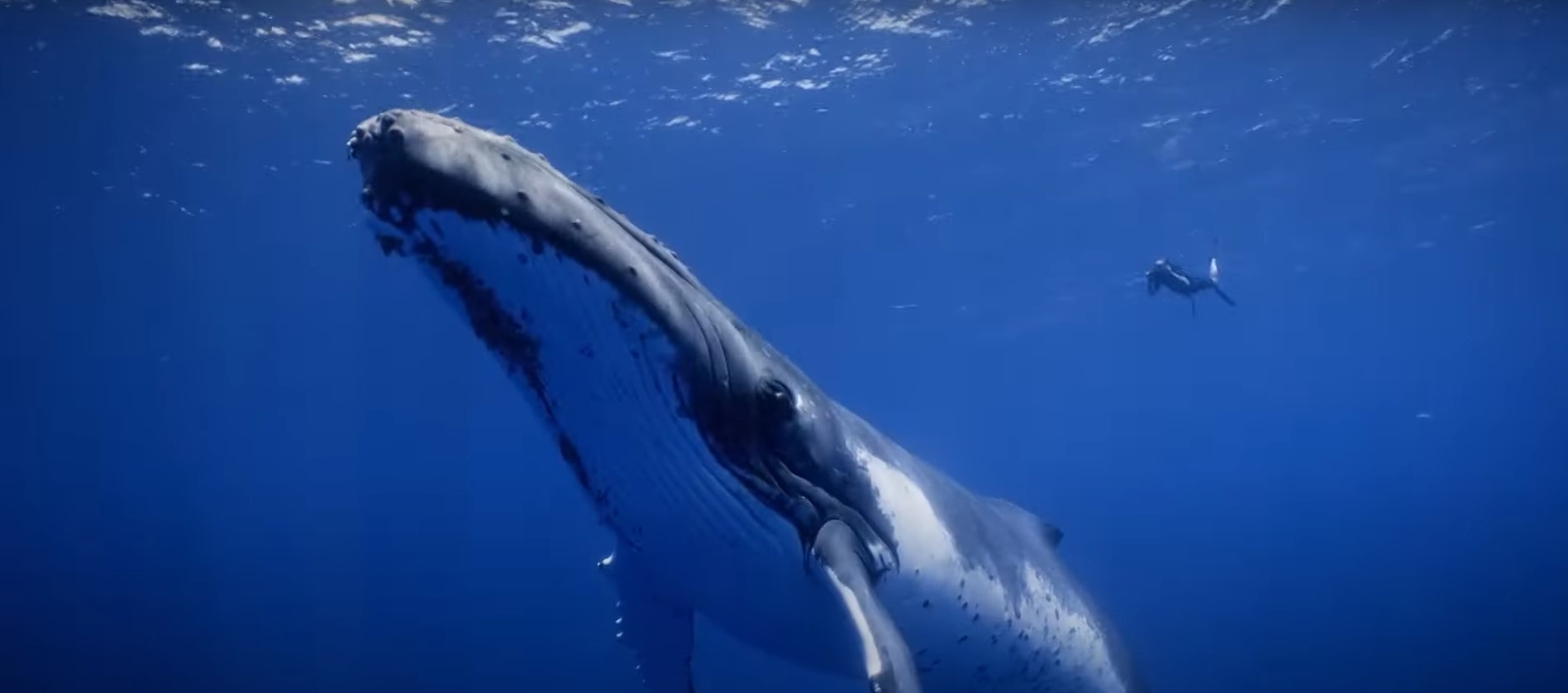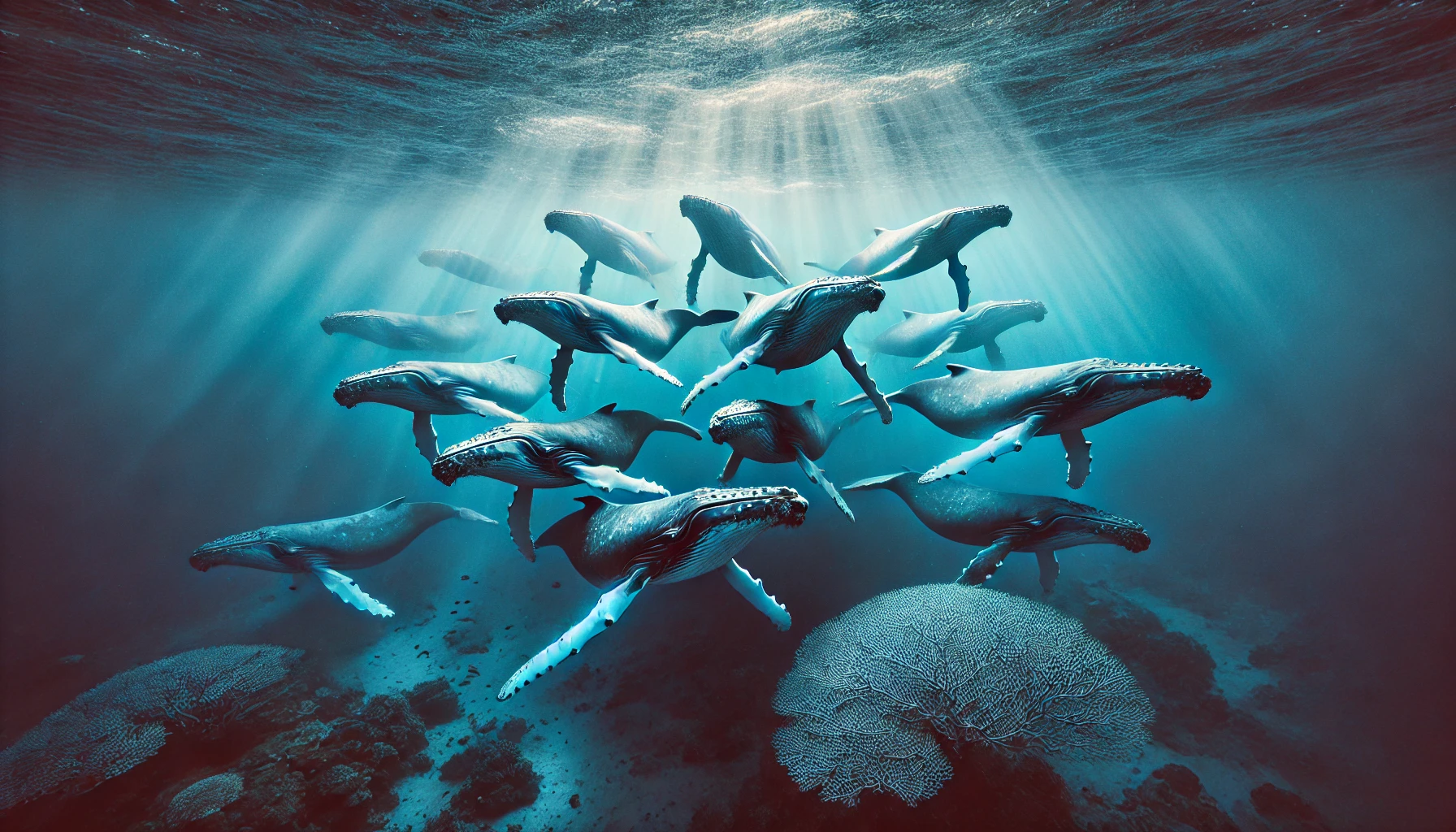Having watched whale documentaries at the aquarium as a child, I was impressed with the territoriality and maternalism of humpback whales in this National Geographic documentary about their ecology. Their territoriality and maternalism gave me insight into human relationships and life.
Why did you choose National Geographic’s Secrets of the Whale documentary?
I remember going to the aquarium as a kid, holding my mom’s hand. At the end of one of the courses, we went into the theater and watched a documentary about whales. It was the first documentary I had ever seen, and I was a little bored because I was scared and didn’t know what the big deal was. I remember watching it distractedly because I wasn’t old enough to pay attention. But for some reason, it stuck with me, and now, 10 years later, I find it deeply moving and comforting.
I’m a very sensitive person. I get incredibly stressed about someone invading my space. I don’t think anyone with an introverted personality doesn’t get stressed, but my hysteria is unusually self-destructive. I’m the type of person who struggles to be liked. I don’t think I’m being hypocritical to be nice, I just want to be liked, and when that doesn’t work out, or when I feel like a failure, I wander off and become self-deprecating and self-abusive, and that’s something no one can fix but me.
So I always needed time to myself until I could get over it. In college, even that became difficult. Sometimes I get tired of communicating. I feel disconnected when I talk to people. I become more fake and the other person becomes more fake. Just when I thought something was wrong, I happened to watch a video about whales. Whales seem to have a clearer sense of territory than humans do, and even though they’re the same mammal, they communicate and live in harmony with each other. It made me feel nostalgic for my childhood. Watching that video made me feel at peace.
So when I was doing the assignment for this documentary course, I really wanted to do it with that documentary. It meant a lot to me and I wanted to watch it again. Maybe it’s because I’m not very good at searching, but I couldn’t find it because all I could remember was a short clip of a huge whale swimming by. I thought about watching a documentary about killer whales, since I loved the movie Freewillie, but this time I decided to do something special and watch a documentary about humpback whales, which I had never seen before.
I was already feeling the strain of the relationship again. I was glad that I had the opportunity to revisit the whales that I hadn’t had time to look for and get myself together.

Summarizing the National Geographic Secrets of the Whales documentary sequence
I’m not sure where to start with this one. It’s not really a documentary about the life of a single whale, but more like an ecological report on humpback whales in pods. What struck me the most about this documentary was the territoriality of the whales, how they are very territorial and vicious if you violate their territory, but live in harmony with each other as long as you protect them, and their maternal love for their young.
First of all, territoriality seems to be a really important lifestyle in the animal world. I thought it was only for land animals, but it seems to be the same for animals as it is for humans. I saw that territoriality is directly related to their safety, so they are very sensitive. They are gentle when they are still, but if you touch them, they become violent. I realized that giving up one’s territory in a weak world is the same as saying, “I’m done living, I’m done dying, so do as you please.” Maybe human relationships are not so tight if we live at a reasonable distance. In our civilized world, we often say that if you are sensitive to your territory, you are unkind. Sometimes we wonder if we don’t realize how it might hurt the other person. I wonder if whales are the same way. Do they think it’s heartless to invade someone else’s territory without distancing themselves?
Second, maternal love. I must have had so-called human paternalism. I hadn’t really thought about whether animals have feelings before, but I heard that they existed like animals in myths and legends, but I felt like, “Well, not really. I thought it was “just natural” for puppies to like people, and that animals have an instinct to preserve their species and reproduce, so they would give birth to and raise their offspring. However, after watching this documentary, I realized that I was very wrong. Love is universal in scope, transcending borders. And whether it’s human or animal, the greatest love of all is maternal love. I learned that humpback whale calves have small lung capacity and need to be brought to the surface every five minutes to breathe. The mother whale holds the calf close to her side and floats it up when the time is right, so it can breathe and return to her side to feed. At any time of day or night, the mother whale’s attention is focused on her baby. Whether it’s helping it breathe or feeding it, a baby whale can’t live long without its mother. As mammals, the bond between mother and calf is unique. Consider sea turtles. Turtle hatchlings are born independent from their eggs. They don’t know who their mother is or where she is, and they have to figure out everything from the moment they leave the egg. They are thrown into a very predatory world and have to survive. But humpback whales don’t leave their mothers’ arms until they’re old enough to be independent. And their mothers care for them with the utmost devotion. It made me cringe to think that my mom could not have been raised any differently, and it made me miss her for the first time in a long time.
Breaking down the format and themes of National Geographic’s Secrets of the Whale documentary
The format was really a documentary about humpback whales. There were moments when I wondered if it wasn’t the best choice, but I still enjoyed watching it. The subject matter is really simple: humpback whales themselves.
Rather than following the life of a single humpback whale, it was more like analyzing the ecology of a group of humpback whales. Therefore, it was not shown in order from baby whales to adult whales. And since it is an animal documentary, narration is indispensable. There is no way for me to understand what the whales are doing without human interpretation. As a result, I felt like I was watching an ocean version of Animal Kingdom.
If I had watched a dolphin documentary, I would have expected to see a documentary with a theme that asked me to be concerned about the ruthless slaughter of dolphins in Japan, but due to my lack of information, the theme was about humpback whales.

National Geographic’s Secrets of the Whale documentary review
I knew that whales are mammals as common sense, but it was new to me. I learned that baby whales nurse, that mothers have breasts, and I wondered what breasts look like on fish. I knew that whales are fat, but I wondered if their breasts were made of fat like humans. It’s not a kinky question, but I’d like to see it for real. I was also curious about how they cut the umbilical cord if they were mammals, and how they protect their babies from predators even though they bleed profusely when they give birth. I was a little disappointed that they didn’t go into detail about that, and after watching it, I didn’t really feel much better. Maybe it’s because I saw how fiercely they live, and I thought that life is not easy anywhere, but somehow, I thought that my life might be easier than yours. It became complicated.
When I think about it, I realize that I’m not an animal, and I don’t have to act like a rabid dog when someone invades my territory, but I still don’t like being invaded without permission.
 I’m a blog writer. I want to write articles that touch people’s hearts. I love Coca-Cola, coffee, reading and traveling. I hope you find happiness through my writing.
I’m a blog writer. I want to write articles that touch people’s hearts. I love Coca-Cola, coffee, reading and traveling. I hope you find happiness through my writing.